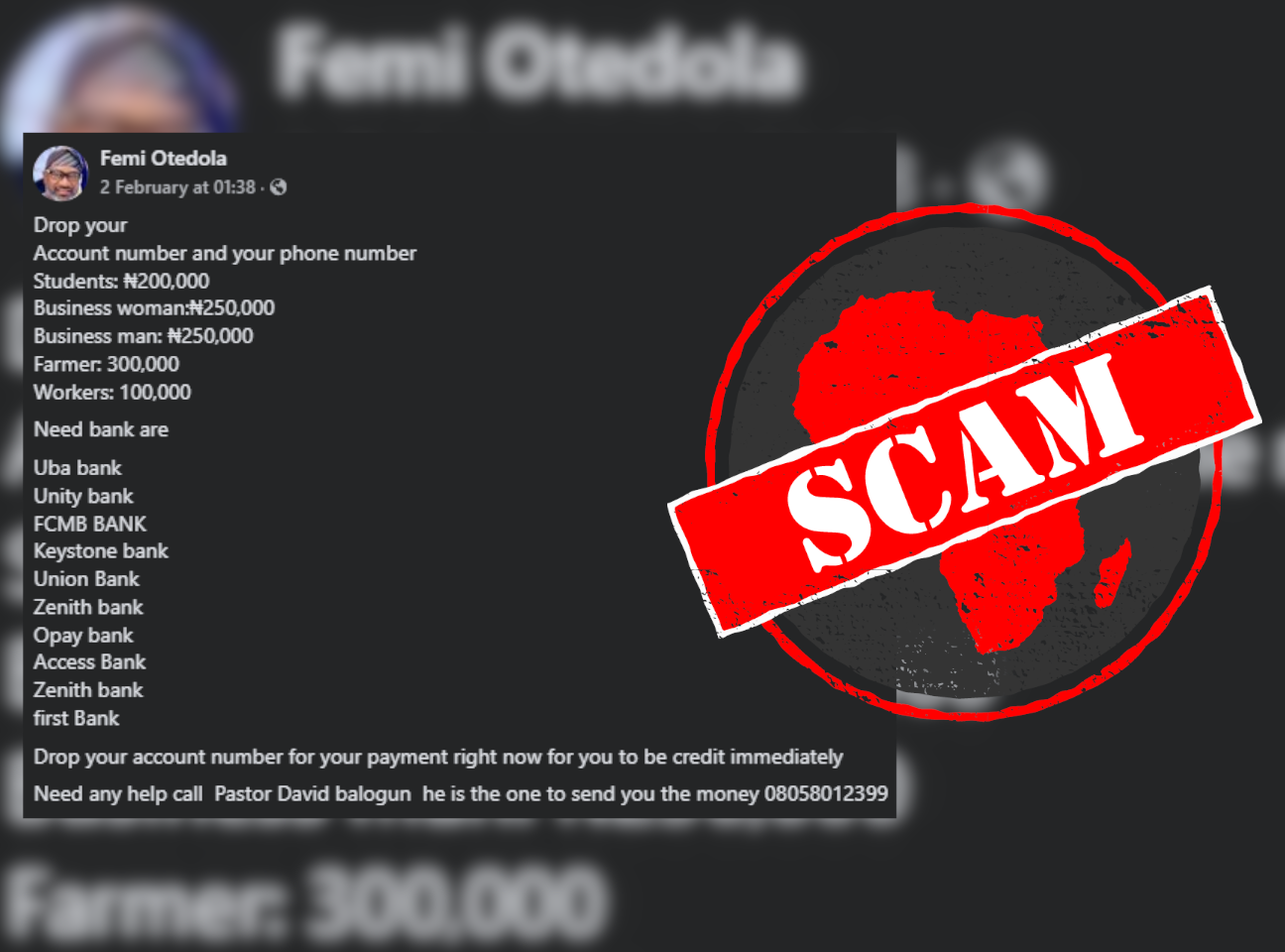IN SHORT: Facebook posts are promising Nigerians cash to be “credited immediately” in the name of business mogul Femi Otedola. But this is just another scam.
A number of Facebook pages are promising cash giveaways and luring in users in the name of Nigerian billionaire Femi Otedola.
One typical Facebook post asked people to “drop” their account and phone numbers in the comments to be credited between N100,000 and N250,000 (roughly US$68 and $170).
It lists Nigerian banks “for you to be credit immediately”, which include “Uba bank, Unity bank, FCMB BANK, Keystone bank, Union Bank”.
It also gives a phone number, apparently for a “Pastor David Balogun”, for users to call if they “need any help”.
We found identical posts published by a different page in Otedola’s name, using photos of him, here, here and here.
Otedola made his fortune in commodities before selling his Forte Oil shares. He chairs Geregu Power.
But is Otedola giving out relatively small cash amounts to people on Facebook? It seems unlikely, but we checked.

Otedola warns against scams
Otedola has 17,000 followers on what appears to be his official Facebook page, though it is not verified. The pages posting the cash giveaways have “friends” only in the hundreds.
In December 2023, Otedola took to Facebook to warn people against falling for scams. He wrote: “I want to inform everyone that Femi Otedola will never chat with you privately for money or ask you to send money to someone else. Anyone who messages you with a normal profile or FB page is obviously not me.”
He also said this was his only page. To avoid falling for scams on Facebook, read our guide.
Republish our content for free
For publishers: what to do if your post is rated false
A fact-checker has rated your Facebook or Instagram post as “false”, “altered”, “partly false” or “missing context”. This could have serious consequences. What do you do?
Click on our guide for the steps you should follow.
Publishers guideAfrica Check teams up with Facebook
Africa Check is a partner in Meta's third-party fact-checking programme to help stop the spread of false information on social media.
The content we rate as “false” will be downgraded on Facebook and Instagram. This means fewer people will see it.
You can also help identify false information on Facebook. This guide explains how.




Add new comment